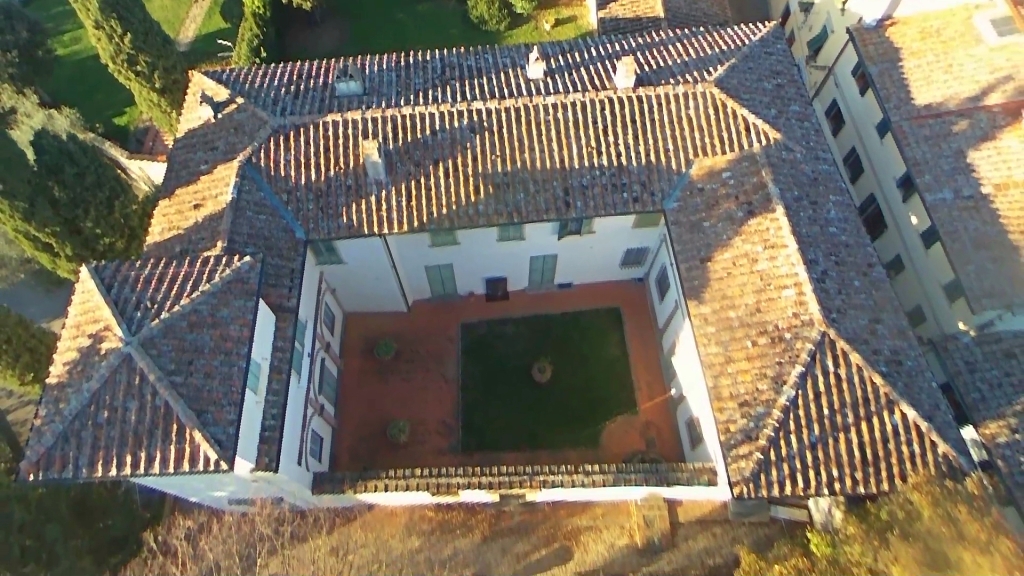Discover has an article titled Galileo Galilei’s Legacy Went Beyond Science, which is about his artistic talents. Although, in style, totally over the top purple prose, the main content of the article is correct but nothing new. It is well known that Galileo was an excellent lutist and that he was a fully trained artist. In fact, his ability to recognise that what he was seeing on the Moon were the shadows of mountains and valleys was due to his artistic training. However, there are some points in the article that require comment.
The article opens thus:
In the first book of his epic poem Paradise Lost, John Milton mentions a “Tuscan Artist” who views the moon’s orb through optic glass. He is referring, somewhat perplexingly, to Galileo Galilei, the Italian scientist famed for his telescopic observations and study of fundamental physical laws.
Today, it might seem odd that Milton’s description of the so-called “father of modern science” was first and foremost an artist. In their context, however, it makes perfect sense — both men lived during the Renaissance, a period of fervent innovation in politics, culture, art and science. To them, it seemed far more natural to blend the many fields of inquiry than to compartmentalize them.
In short, if there is a border between Galileo’s intellectual endeavors, it is often too fine to distinguish.
The authors interpretation of Milton’s use of the term artist is rubbish. In the first half of the seventeenth century the word artist would generally mean “one skilled in any art or craft” and not artist as we understand the word today and this is certainly the sense in which Milton used the term. Artist and artisan are still synonyms at the time.
We pass on:
We remember Galileo today mainly for his pivotal contributions to astronomy, physics and mathematics.
Galileo made almost no contributions to mathematics.
The Italian thinker emphasized a methodical approach to the study of the universe, and inspired the modern scientific method that remains a bedrock of scientific inquiry even 380 years after his death.
I get fed up pointing out that Galileo did not create/invent/inspire the modern scientific method, just accept that he didn’t.
Beyond that, his astronomical observations completely upended the way we think about the cosmos. In short, we mostly think of Galileo as one of the greatest scientists of all time.
Yes, the first telescopic astronomical observations did have a massive impact, but they were made by quite a lot of people and not just Galileo. Can we please just simply stop using garbage expressions like “the greatest scientists of all time.”
In reality, however, his accomplishments and expertise — including music, literature and visual arts — ranged as widely as those of other quintessential Renaissance figures, like Leonardo da Vinci and Leon Battisa Alberti, the latter of whom proclaimed the ideal of the era: “A man can do all things if he will.”
As already acknowledged above, it is well known that Galileo possessed talent as a musician, writer, and artist (in the modern sense). However, whether it is wise to compare him with Leonardo da Vinci is debateable. There is, however, an excellent book by Matteo Valleriani, Galileo Engineer (Springer, 2012) that argues persuasively for a general assessment of Galileo as a Renaissance engineer rather than as a scientist.
The description of his up bringing and musical education from his father is OK if somewhat overblown but the closing paragraph to that section is to say the least very questionable.
After the Inquisition forced Galileo to recant his views on heliocentrism (the then-heretical theory that Earth revolves around the sun), he spent much of his final decade under house arrest, blind and ailing.
The heliocentric theory was never declared heretical! The second half of the sentence is unnecessarily plaintive. It implies, whether intended or not, that Galileo’s ill-health in the last decade of his life were somehow a result of his house arrest. Let us first clear up what Galileo’s house arrest consisted of. He lived in his villa in Tuscany cared for by servants and served by an amanuensis, working in comfort on his real scientific legacy, Discorsi e Dimostrazioni Matematiche, intorno a due nuove scienze (Discourses and Mathematical Demonstrations Relating to Two New Sciences, 1638).

He was also allowed to have visitors, John Milton for example. Although not allowed to travel, which given his age and his state of health he probably wouldn’t have done anyway, he led a life that was in quality considerable better than a large part of the general Tuscan population of the time. In 1633, when his house arrest began, he was already sixty-nine years old and had been suffering from ill-health for several years that was not unrelated to his bacchanalian lifestyle, he always loved his food and wine. He first went blind in 1638 and, despite his house arrest, he was allowed to travel the Florence for medical treatment.
To close:
And once again, Galileo’s aesthetic education can be detected in his scientific discourse. Years of reading these poets taught him to write clearly and believably about even the most foreign concepts, as he did in defending the heliocentric model of the universe against deeply entrenched beliefs, not to mention commonsense.
In fact, Galileo’s undeniable talents as a writer and polemicist, which make his writings so very readable, lead to the fact that people very easily oversee the large chunks of those writings that are in fact wrong and were wrong when he wrote them. For example, his Il Saggiatore (The Assayer, 1623) is undoubtably a polemic masterpiece but almost nobody realises that in the central argument of the debate on the nature of comets, of which the book in part, Galileo is simply and totally wrong and that the empirical evidence of the period clearly showed him to be wrong. The greatest scientists of all time‽